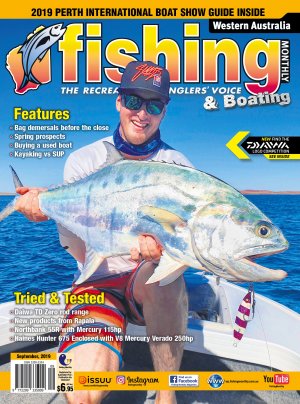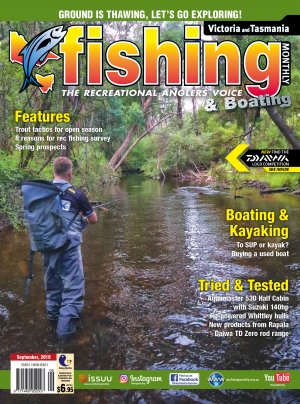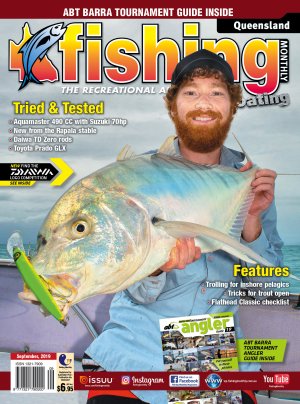In the past few months I have looked at how to choose the right camp trailer for different situations. If you are going to tow a camper trailer to areas in the Gulf or TNQ then there are several other features that your new trailer will need.
Your camp trailer will be exposed to potholes filled with bull dust and gravel roads that are so badly corrugated – you won’t believe that they’re main roads. ‘Been there, done that’ will take on a whole new meaning when reviewing the journey later after returning home.
Self-sufficiency is everything in this neck of the woods as help can be many, many hours away. There are plenty of modern camper units that are self-sufficient and can make offroad camping an enjoyable experience.
Firstly, we have to arrive in one piece. Camper trailers set up with fully independent coil suspension incorporating bump stops, hydraulic or electronic disc brakes, fully independent 360 travel tow hitch and ground clearance as good as or better than the tow vehicle are mandatory. A shield system that protects the front of the camper from rocks thrown up by wheels when travelling on rough roads is also a requirement. Dust sealing on hinge points, doors and other likely entry areas need to be heavy duty and capable of adjustment to allow for wear and tear.
Travellers to far off destinations will need to carry plenty of water and electrical power, so decent water tanks and extra places to carry jerry cans are useful features. Most campers take a fridge with them these days so electrical power and solar direct input units to maintain the fridge while travelling are always appreciated.
A stove or kitchen unit that can be assembled quickly will be a blessing too. And if the fridge or stove is inside in the camper trailer then a pantry should be included as well. In purpose built offroad trailers a pantry will come standard.
A lot of modern camper trailers feature in-built LED lighting, which do an excellent job and don’t require much power. Sure beats the old gas lamps we’ve had to use in the past.
Camping in remote places often means that there will be a few insects around. Strong, fitted fly screens should be a part of the short list when choosing that unit. The question is, will the mesh keep sand flies out?
The list of items I have mentioned are the starting points. It’s all food for thought when deciding what is required to get to a place where the fishing makes the effort involved a worthwhile reward.
Incorporating all of these points will involve a camper unit where virtually nothing is sacrificed. All of the features that I’ve discussed contribute to the weight of the trailer. It’s important to make sure that the car, which must also carry passengers and the required gear to make the trip a success, is backed up to the tow hitch prior to the big trip.
The car’s wellbeing is also important. A thorough service prior to a long or extended trip is insurance against mechanical problems and smart travellers always pack a few handy spares such as belts for air conditioner as well as radiator hoses. Check that the wheel brace for the car will suit the camper’s wheels. If it won’t then one should be purchased.
If the tow unit is getting on in kilometres then a radiator flush and cooling system clean out is a smart move prior to heading off, particularly if going north.
If you’re going trout angling at high altitudes then a dose of new anti-freeze within the cooling system will be the ticket.
Reads: 1566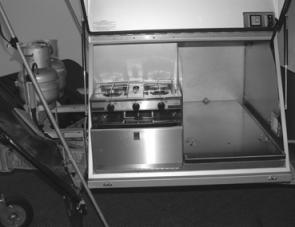
An easily accessed stove is one feature that’s important in a modern offroad camper unit.
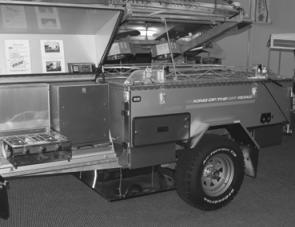
When it comes to travelling a long way off the beaten track, a well set-up unit such as this one from Kimberley Kampers can make it easy.


